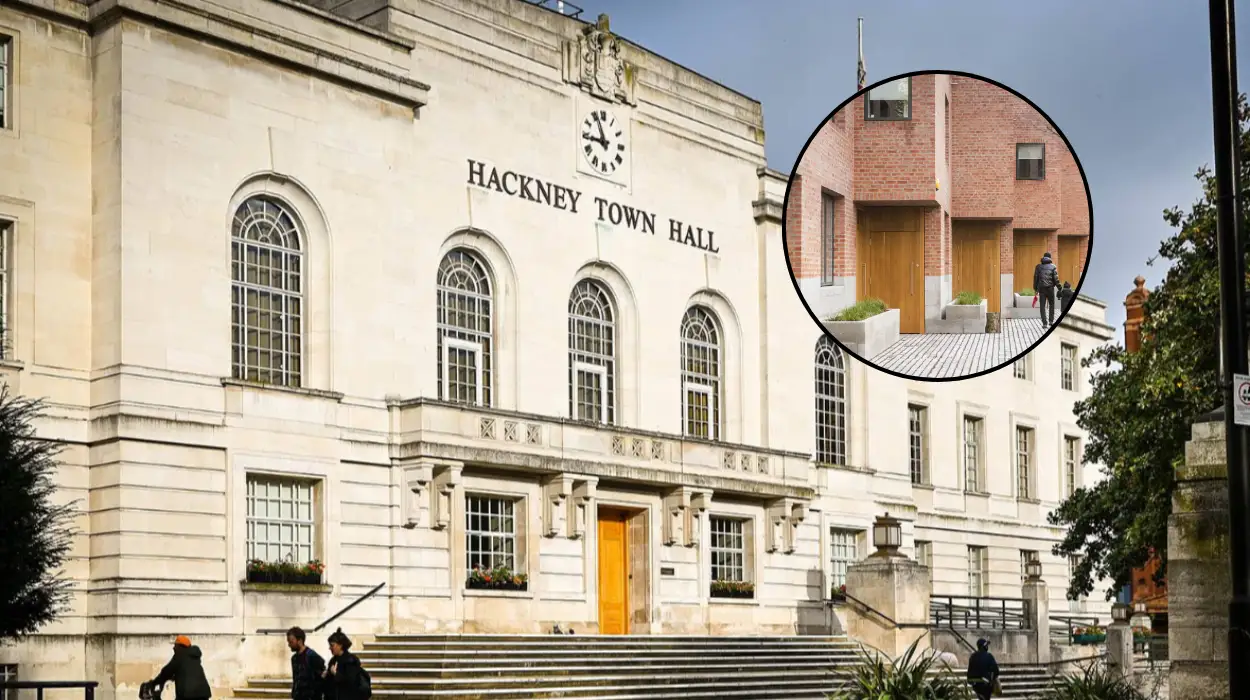Key Points
- Hackney Council has launched a Housing Improvement Plan following a “non-compliant” C3 consumer grade from the Regulator of Social Housing.
- The special investigation by the Housing Ombudsman revealed maladministration in 79% of complaints, serious failings in repairs, damp, mould, and complaints handling.
- The Regulator cited over 400 homes without up-to-date gas safety certificates, more than 15,000 homes lacking valid electrical safety checks, and hundreds of overdue repairs and safety surveys.
- Hackney’s plan includes installing a new ICT system, clearing all repair backlogs, and forming an independent Housing Advisory Panel.
- Council leaders and officers have publicly apologised and committed to change, with Cllr Guy Nicholson, Deputy Mayor, vowing to involve tenants and professionals in oversight.
- The 2020 cyber-attack significantly disrupted Hackney’s housing management capabilities, causing data loss and operational setbacks.
- The Housing Ombudsman and the Regulator will engage in ongoing scrutiny as the plan is rolled out, while the council faces pressure to avoid overstating improvements (“positivity prism”).
- The Housing Ombudsman’s report highlighted systemic issues, performance bonus mis-incentives, insufficient learning from complaints, and recurring gaps in knowledge management.
- The Improvement Plan targets full recovery by the end of 2025, with ongoing reporting to residents, councillors, the Ombudsman, and the Regulator.
- Council pledges support for staff and aims to restore public trust through transparency, investment, and sustained partnership with tenants.
Hackney Council is under intense scrutiny and public pressure after the Regulator of Social Housing awarded it a C3 consumer grade for serious failings, prompting a sweeping Improvement Plan aimed at fixing dangerous housing conditions, clearing repair backlogs and rebuilding accountability with tenants and residents.
- Key Points
- What triggered Hackney Council’s non-compliance grade?
- What did the Housing Ombudsman special investigation reveal?
- What does Hackney Council’s improvement plan entail?
- How have council leaders and the Housing Ombudsman responded?
- Why did performance and oversight break down at Hackney Council?
- How will tenants and residents be kept informed?
- What are the next steps and oversight mechanisms?
- How have residents reacted, and what challenges remain?
What triggered Hackney Council’s non-compliance grade?
As reported by Matilda Battersby of Housing Today, on 15 July 2025, Hackney Council initiated an urgent improvement drive in response to a damning regulatory judgement. The Regulator of Social Housing’s first-ever consumer grade for Hackney assessed the council at C3—signifying
“serious failings in the landlord delivering the outcomes of the consumer standards and significant improvement is needed”.
A regulatory assessment published in August 2024 found that Hackney Council had not met critical statutory duties, including gas and electrical safety, smoke and carbon monoxide detector installations, and routine lift, water, and asbestos inspections. The council reported over 400 homes without recent gas safety checks, 15,000+ lacking electrical safety certificates (including 7,000 homes never inspected), and 8,900 homes with uncertain smoke detection status, among other gaps.
What did the Housing Ombudsman special investigation reveal?
As documented in the Housing Ombudsman’s Special Report (May 2025) and summarised by the Housing Ombudsman team, a systemic investigation began in October 2023 following a spike in maladministration findings—79% of complaint cases, and 87% among damp and mould complaints, 74% for repairs, and 83% for complaints handling overall.
Among the Ombudsman’s stark findings:
- Repairs backlog stretched to thousands of cases post-pandemic, with nearly 1,800 overdue repair orders going back to October 2023 and more than 1,400 open damp and mould cases (500+ overdue, 600 severe).
- The landlord’s bonus incentives encouraged operatives to prematurely close jobs, understating real workload and leading to missed repairs and repeat visits.
- Reporting practices frequently “overstated” progress—known as the “positivity prism”—by focusing on the volume of completed repairs without context on backlogs or repeat attendances.
- One case highlighted a resident left seven weeks without heating and hot water; another involved dangerous unresolved damp caused by repeated failures to inspect and act on flooding and leaks.
- Customer satisfaction rates were reported as improving, but with as little as a 2.5% response rate, rendering these figures unrepresentative.
- Hackney’s complaints process suffered long acknowledgement and response delays, with only 14% satisfaction on stage one and low compensation settlements for residents unless a case escalated to the Ombudsman.
The Ombudsman’s conclusive statement, cited by journalist Harry Rodd of Local Government Lawyer, warned Hackney to avoid “overstating improvements”, and insisted the council address root causes instead of only tracking outputs like inspections or repair orders.
What does Hackney Council’s improvement plan entail?
As detailed by the council’s press office and the cabinet report, the accelerated Housing Improvement Plan was recommended for approval at the Cabinet meeting on 21 July 2025:
- Clearing repair backlogs: “No repairs outstanding over three months by end of September 2025; backlog eliminated before December 2025,” according to the council.
- Upgraded ICT and data infrastructure: Recovery from the 2020 cyber-attack remains incomplete. The plan includes procurement of a new housing management system—multi-departmental staff will have updated access by March 2026.
- Tenant co-production and oversight: Establishment of an independent Housing Advisory Panel with expert and tenant representation by September 2025.
- Improved complaints management: New procedures and tracking for timely and effective resolution—commitment to overhaul complaints by December 2025, incorporating Ombudsman feedback.
- Workforce investment: Targeted training, recruitment, and support for front-line staff who, as Cllr Guy Nicholson stated, “have been struggling to provide a service day in day out without the right tools”.
- Ongoing engagement: Regular reporting to tenants, councillors, and independent regulators during implementation.
How have council leaders and the Housing Ombudsman responded?
Cllr Guy Nicholson, Deputy Mayor and Cabinet Member for Housing Management and Regeneration, directly addressed the findings in a public apology:
As quoted by the Hackney Council press office:
“Improving the quality, efficiency, and delivery of Hackney’s Housing Services is front and centre of the council’s focus. The Housing Improvement Plan will help realise this ambition. Little of this improvement will come about unless there is the support for the housing staff who have been struggling to provide a service day in day out without the right tools to do the job. With the backing of the council, the service will be invested into to provide the support and tools that are sorely needed to deliver an outstanding and fit-for-purpose service for tenants and residents”.
In the Ombudsman’s summary, Richard Blakeway commended the council’s engagement and commitment to learning, while urging it to avoid surface-level reassurances:
“The pressure for improvement has sometimes created a ‘positivity prism’ which has overstated changes compared to the reality experienced by residents. It must ensure its mindset does not prevent real learning and reflection, including from complaints, to achieve its ambitions”.
Why did performance and oversight break down at Hackney Council?
As revealed by both the Regulator and Housing Ombudsman, service failures stem from a confluence of long-term factors:
- Cyber-attack and IT failure: The council’s core housing systems were disrupted in 2020, with incomplete recovery by mid-2025. Staff had been forced to rely on spreadsheets and workarounds, hampering record-keeping and repair management.
- Leadership turbulence: Both the Mayor and CEO resigned in 2023, complicating efforts to implement coherent strategies.
- Housing stock pressures: With one of London’s largest and oldest social housing portfolios—over 21,000 units—Hackney faced unique performance and resource challenges, compounded by the sector-wide impacts of the Covid-19 pandemic and rising costs.
- Inadequate oversight and learning: Regular reporting failed to alert the council’s scrutiny commissions to the true scale of repair backlogs or the recurrence of complaints, limiting accountability and remedial action.
- Misaligned incentives: The performance bonus system, according to the Housing Ombudsman, “created a perverse incentive for operatives to mark jobs as ‘complete’ to meet targets”, masking repeat visits and unaddressed problems.
How will tenants and residents be kept informed?
The Housing Improvement Plan mandates quarterly reporting to:
- Tenants and resident groups, through existing and new forums (including the Housing Advisory Panel),
- Councillors and scrutiny commissions,
- The Regulator of Social Housing and Housing Ombudsman.
The council also intends to circulate updates via social media and its regular newsletters, seeking to rebuild trust and involve tenants in shaping reforms.
What are the next steps and oversight mechanisms?
As discussed in the Local Government Association’s peer reviews and outlined by Kate Herbert, Principal Adviser for London, Hackney will submit ongoing progress reviews, with a formal check-in planned for September 2025. The Regulator will continue “intensive engagement” with the council and has reserved powers for further intervention if improvements lag, but has not, at this stage, proposed enforcement action.
A performance management framework will be updated to align with council and mayoral priorities, with new dashboards and transparent benchmarking of repair, complaint, and satisfaction metrics.
How have residents reacted, and what challenges remain?
Residents’ advocacy groups, speaking through forums and the Ombudsman’s staff consultations, demand swifter, more tangible outcomes—particularly for issues like damp and mould, unresolved repairs, and meaningful consultation. Satisfaction rates remain low; “the journey will take time, this is not some quick fix,” acknowledged Cllr Nicholson.
The council faces substantial logistical and financial challenges in modernising its systems, addressing the legacy of the cyber-attack, and restoring confidence in repairs, complaints handling, and property safety.



